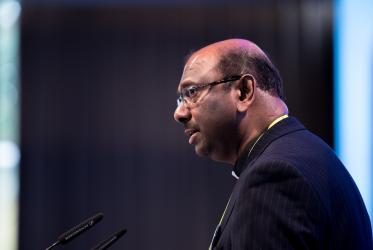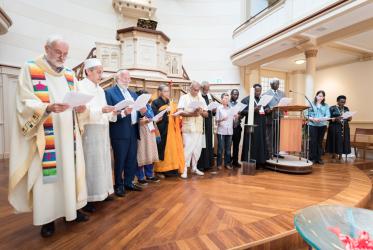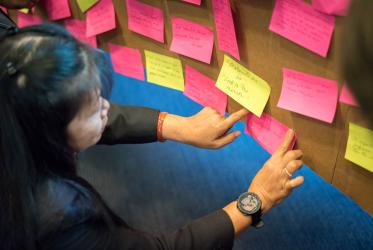Displaying 1 - 14 of 14
Thursdays in Black: sharing support, transforming lives
21 February 2019
Working toward an AIDS-free generation
26 July 2018
Building bridges of faith in the HIV response
25 July 2018
New Executive Committee members elected in Trondheim
28 June 2016
“European solidarity must be strengthened”
29 October 2015
WCC Executive Committee speaks out on migrant crises
12 June 2015
Religious leaders urge a ban on fully autonomous weapons
02 April 2015











